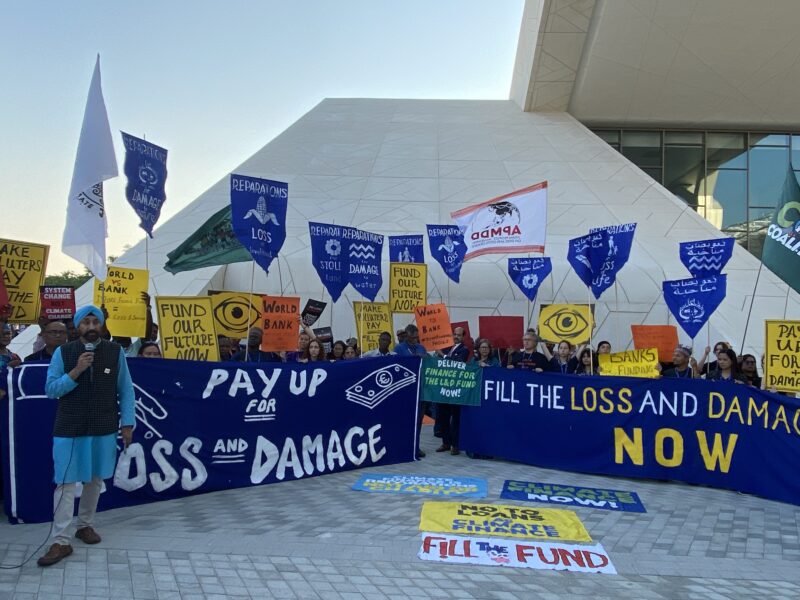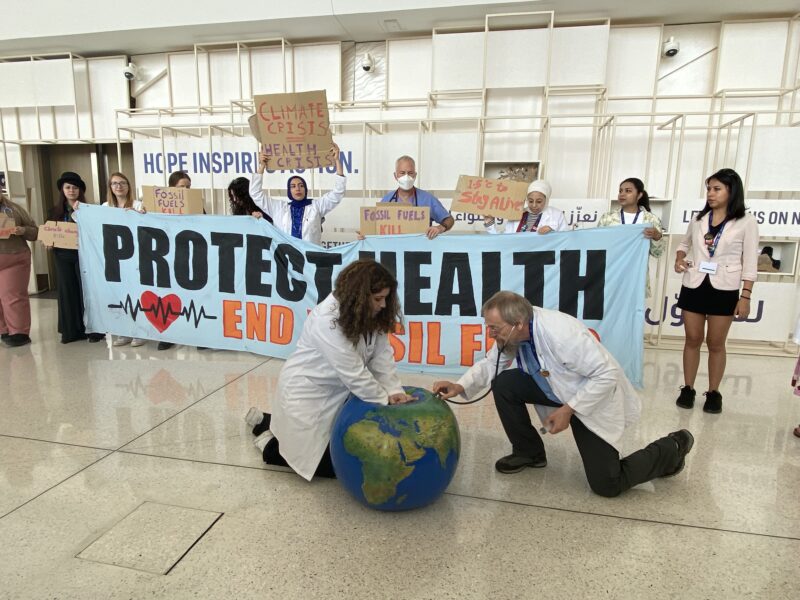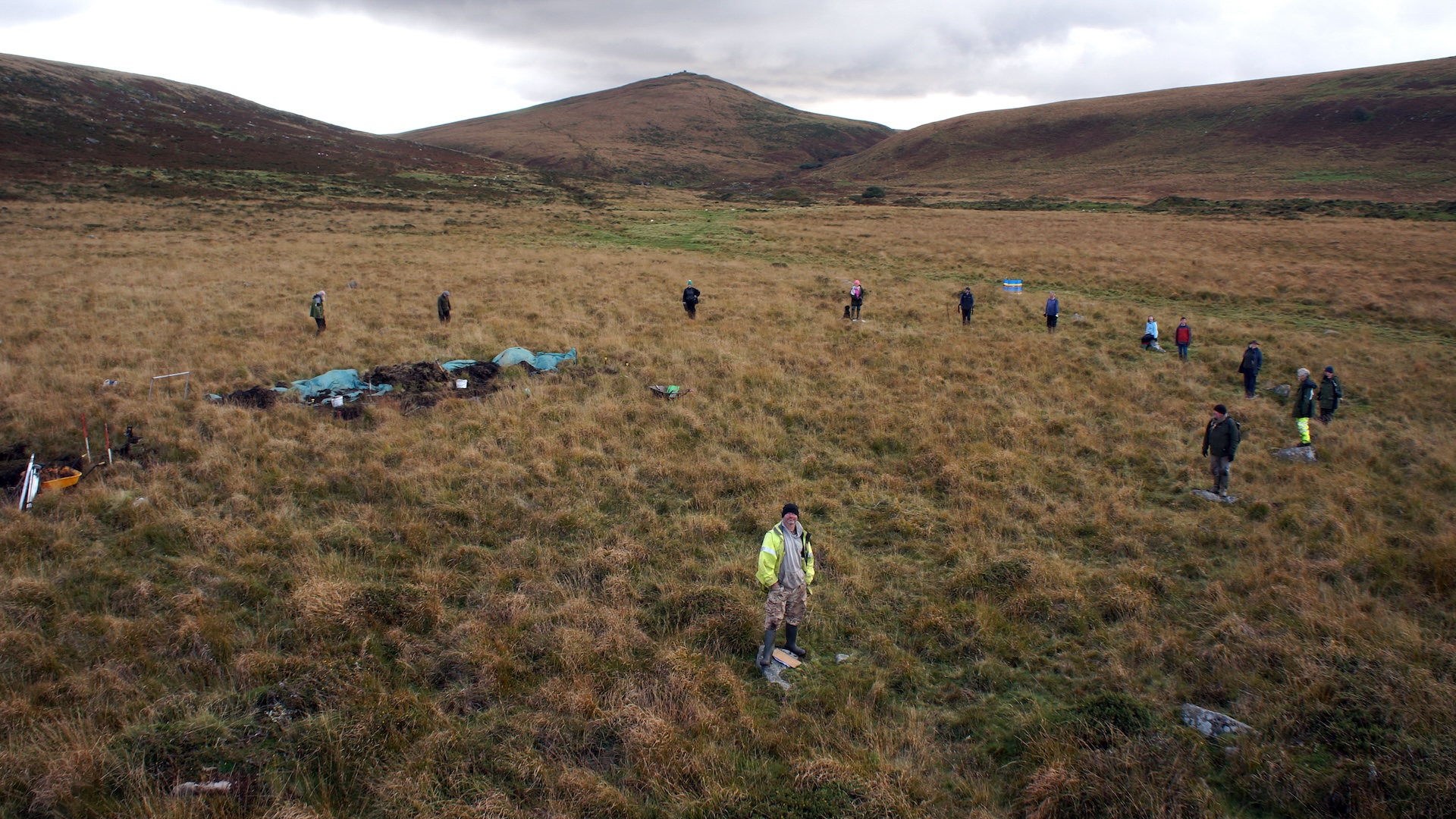This year’s annual UN climate talks, COP28, concluded in Dubai earlier this month with nations agreeing to the UAE Consensus.
After 30 long years, we finally have a global agreement that addresses a transition away from fossil fuels, the primary driver of human-caused climate change. It falls short of the fast, fair, and funded fossil fuel phaseout that scientists, businesses, health experts, and climate activists have called for, but nevertheless is an important step forward.
Now that we’re past the initial headlines, it’s worth taking stock of what was really accomplished, where the outcomes fell short, and what’s next for global climate policy.
COP28 outcomes fall short
The core outcomes of COP28 are captured in the UAE Consensus, which includes a series of agreements, including a decision to operationalize the Loss and Damage Fund, the outcome of the First Global Stocktake, and a decision on the Global Goal on Adaptation.
Ahead of COP28, UCS organized a letter from more than 650 scientists to President Biden urging bold climate action, and I blogged about the five things I’d be watching for world leaders to accomplish. So, how did the negotiations and the final set of agreements stack up against these benchmarks for what the world needs to address the climate crisis?
In a nutshell: there were some bright spots but overall, the agreement falls short in significant ways and there’s hard work ahead to build on what was secured in Dubai.
 Civil society action at COP28 in Dubai. Source: Rachel Cleetus/UCS.
Civil society action at COP28 in Dubai. Source: Rachel Cleetus/UCS.Fossil fuel interests on brazen display
COP28 featured a sobering–even infuriating–display of the brazen influence of fossil fuel interests on global climate policy. A record number of fossil fuel lobbyists registered for the conference. Repeated scandals broke through in the news about the COP28 Presidency’s conflicts of interest and offhand comments that seemingly denied the science. (My colleagues Kathy Mulvey and Delta Merner wrote about this). Saudi Arabia and OPEC states made clear their opposition to any language targeting fossil fuels in the final agreement.
These seriously problematic power dynamics are also reflected at the national level around the world–including in the United States where fossil fuel interests still hold a strong sway over policies and policymakers–obstructing, delaying, and watering down climate action, and continuing to expand oil and gas production at record levels. We won’t succeed in securing necessary climate action unless the power of the fossil fuel industry is dismantled and they are held accountable.
Key takeaways from COP28
As is always the case, the two-plus weeks of COP are incredibly busy and full of ups and downs. While the negotiations form the core of the event, there are also announcements of initiatives from different stakeholders—some substantive and some merely window dressing. Side events and press conferences abound. Civil society actions play a prominent role in ensuring that the voices of people are represented, not just the views of politicians and deep-pocketed businesses.
While there’s no way to capture everything that happened in a single blog post, you can find more information in additional blogs my colleagues and I wrote before and during COP28.
Here are some of the highlights and lowlights from COP28:
Loss and Damage Fund is operationalized
On Day 1 of COP28, nations agreed to operationalize the Loss and Damage Fund, a significant win for climate justice that was decades in the making. Initial pledges to the fund add up to just under $800 million. That includes pledges from Italy ($108 million), France ($108 million), the UAE ($100 million), Germany ($100 million), and the US (a paltry $17.5 million). While no new climate fund has ever been set up and capitalized so quickly, the pledges to date are a far cry from the billions that climate vulnerable low- and middle-income countries need and deserve.
As we look ahead to 2024, a new independent board will need to be set up for the fund, and the World Bank will need to demonstrate that it can meet the conditions to be the initial host for it. Once the operational details are squared away, funding can start to flow to countries based on criteria determined by the board. Nations must also come forward with much more substantial funding for loss and damage as part of the next round of climate finance pledges.
Many announcements and side initiatives
The opening days of COP28 were filled with political announcements from the high-level segment and a myriad of side initiatives, including several from the United States. Vice President Harris addressed the summit and announced a $3 billion pledge to the Green Climate Fund. The U.S. also participated in the Global Methane Pledge Ministerial and announced final EPA pollution standards to limit methane emissions from oil and gas operations, a critical step to addressing the health and environmental harms from these emissions.
The U.S. and some partners also announced next steps for the Energy Transition Accelerator. Very much a work-in-progress, and with some serious flaws, this is intended to be a carbon offsets program for leveraging private capital for a transition away from coal in the power sector in developing countries. My colleague Ed Lyman has also addressed significant concerns with the announcements related to tripling nuclear capacity by 2050 and promoting nuclear fusion.
Contentious debate over fossil fuel phaseout language
The first Global Stocktake took center stage at COP28, representing a key moment for the world to assess progress on climate action relative to the goals of the Paris Agreement and respond appropriately. With the latest data showing the global emissions trajectory wildly off track, civil society and many climate-vulnerable nations led with a strong call for a fast, fair, and funded phaseout of all fossil fuels (coal, oil, and gas), while simultaneously ramping up renewable energy and energy efficiency.
While the call for scaling up clean energy found early buy-in from world leaders, it was clear from the outset that the equally urgent and necessary call for a fossil fuel phaseout would come up against strong opposition from fossil fuel interests and petrostates. The United States voiced support for addressing fossil fuels, but paradoxically it also is producing and exporting oil and fossil gas at record levels. Meanwhile, some low-income nations balked at agreeing to a phaseout without finance from richer countries to help them make the clean energy transition and close the energy poverty gap they face.
The first iteration of the Global Stocktake text on the “energy package” was so weak that it was universally panned. Minister Cedric Schuster of Samoa, speaking on behalf of the Association of Small Island States (AOSIS), said bluntly, “We will not sign our death certificate.”
Minister John Silk of the Marshall Islands echoed that in press conference, saying, “We will not go silently to our watery graves.”
Unsurprisingly, COP28 went into overtime as nations struggled to reach agreement on stronger language on fossil fuels. In the final hours, an improved text–albeit still flawed–emerged and was agreed upon. It calls for “Transitioning away from fossil fuels in energy systems, in a just, orderly and equitable manner, accelerating action in this critical decade, so as to achieve net zero by 2050 in keeping with the science.”
In addition, the agreement calls for globally tripling renewable energy and doubling the annual rate of energy efficiency improvements by 2030; phasing down coal-fired power; accelerating deployment of zero- and low-emission technologies; accelerating reductions in methane emissions; accelerating the development of infrastructure and rapid deployment of zero- and low-emission vehicles; and phasing out inefficient fossil fuel subsidies that do not address energy poverty or just transitions.
Unfortunately, the text also contains concerning loopholes, such as open-ended references to “transition fuels” and technologies like carbon capture and storage (CCS), which fossil fuel interests could exploit as an excuse to prolong the use of fossil fuels. There is also no assurance that richer nations will shoulder the responsibility for providing funding to make an equitable global clean energy transition possible in the short timeframe necessary to meet the climate challenge.
Not enough progress on adaptation
Negotiations related to the Global Goal on Adaptation (GGA) fell well short of what’s needed and unfortunately did not get the same level of attention as addressing fossil fuels. Because of decades of insufficient action to cut heat-trapping emissions (aka mitigation), the world must now prioritize adaptation and building resilience to climate impacts on par with actions to cut emissions. Without that, many nations–including in Africa, Asia, Latin America, and small islands–will increasingly face sharp setbacks to their economic development and social well-being as climate extremes worsen.
The latest UN Adaptation Gap Report shows a gap of $194 billion to $366 billion per year between what developing countries need to adapt to mounting climate harms and what is currently being provided by richer nations. Yet, the final agreement ended up with weak text on adaptation and highly insufficient commitments to boost adaptation finance from richer nations. This contributed to a sense of injustice, especially for African nations that have already borne a particularly harsh burden of drought, flooding, displacement of people, and food insecurity.
One potential avenue for improvement is that the text calls for convening a high-level ministerial dialogue next year on the urgent need to scale up adaptation finance. It also, “Urges developed country Parties to prepare a report on the doubling of the collective provision of climate finance for adaptation to developing country Parties from 2019 levels by 2025.”
Who will pay? Richer nations continue to shirk their responsibility.
Climate finance continues to be a major sticking point across the board in global climate negotiations. It simply won’t be possible to achieve global climate goals on the urgent timeline we face unless richer nations take the lead in providing scaled-up, grant-based public finance, alongside a range of other sources such as multilateral banks, private entities, philanthropies, and innovative sources of finance, e.g. pollution levies on fossil fuel companies.
A process was agreed to at COP28 for nations to negotiate a new collective quantified goal (NCQG) for climate finance to be decided at COP29. It could create an opportunity to address this long-standing challenge—but only if wealthy nations are willing to finally step up to the plate.
 Health professionals share an urgent message at COP28. Source: Rachel Cleetus/UCS.
Health professionals share an urgent message at COP28. Source: Rachel Cleetus/UCS.Now, the real work begins
There’s no question that the UAE Consensus is flawed and insufficient—which will have real and damaging consequences for people on the frontlines of the climate crisis.
Shortly after the agreement was gaveled through by the COP28 Presidency, Minister Anne Rasmussen of Samoa delivered a powerful statement voicing the deep disappointment of the Alliance of Small Island States. She said, “It is not enough for us to reference the science and then make agreements that ignore what the science is telling us we need to do. This is not an approach that we should be asked to defend.”
Furthermore, international agreements are only as good as the actions nations take to follow up on them and live up to their collective responsibility. There is no global government that will impose top-down mandates; ramping up climate ambition and a willingness to be fair must come from domestic policies and greater international cooperation. With the climate crisis already so dire, richer nations like the United States can and should do more to drive down emissions, provide climate finance, and address loss and damage.
The agreement that emerged from Dubai, though imperfect, does nevertheless provide an important step forward and the space to fight for more. The opportunity for that will come as nations work to submit their next round of emissions reduction pledges (also called nationally determined contributions or NDCs) by 2025, as well as new adaptation commitments and new climate finance pledges (the NCQG). Connecting these global goals to domestic policies–including federal, state, and local policies in the United States–is crucial to giving them real heft and substance. And that will take political will and pressure from the voting public.
UCS’s role at COP28
UCS has engaged as an Observer organization in these global climate negotiations since they first began, and I feel privileged to be part of a small team who was on the ground in Dubai. During these climate negotiations, we engaged with many stakeholders from around the world including a global coalition of NGOs, the Climate Action Network. And, as a US-based NGO, we took seriously our responsibility to put pressure on our policymakers to deliver on the global stage, given that we are the world’s richest nation and the largest historical contributor to global heat-trapping emissions.
At COP28, we had the opportunity to meet with, and directly communicate our priorities to US Special Envoy for Climate John Kerry, the US negotiating team, staffers from the US Congressional delegation, and negotiators from other countries. We were inspired by the work of youth climate activists, Indigenous activists and activists focused on human rights and gender justice. We joined together in many powerful public actions calling for science-aligned policies and climate justice. We also participated in side events, press conferences and media interviews.
 Our daily (much needed!) treat at COP28: Delicious and refreshing real fruit popsicles, no added sugar. Source: Rachel Cleetus/UCS.
Our daily (much needed!) treat at COP28: Delicious and refreshing real fruit popsicles, no added sugar. Source: Rachel Cleetus/UCS.The work at COP is often an intense blur of long days and nights and extreme highs and lows. It can feel like moving mountains to get policymakers to agree to bold and necessary action, especially in such a contested space filled with fossil fuel interests. As one might expect, negotiations at COP are not immune from geopolitical tensions and global political and economic power dynamics.
And yet there are amazing moments of solidarity, inspiration, and grace, when one feels the collective power of the global climate justice movement. This year, we felt that when the very weak initial text on fossil fuels was roundly rejected and we were able to fight for and secure a better outcome. We felt that when we heard the Colombian minister for the environment, Susana Muhamad, speak about her nation’s heroic efforts to phase out fossil fuel production in the face of significant odds. And we felt that when ministers from the Marshall Islands and Samoa spoke up courageously, as the conscience of the world, for science and justice.
As frustrating as it can be, COP is the only forum where all nations, no matter how small or big, have a seat at the table as world leaders make decisions about our collective future.
I am closing out this sobering year–the hottest year on record thus far, one that was filled with devastating climate extremes–with a glimmer of hope that we are closer to ending the deadly, polluting era of fossil fuels and ushering in a cleaner, healthier future for all.
 Here’s hoping for the sun to set soon on the era of fossil fuels. Source: Rachel Cleetus/UCS.
Here’s hoping for the sun to set soon on the era of fossil fuels. Source: Rachel Cleetus/UCS.
 11 months ago
46
11 months ago
46


